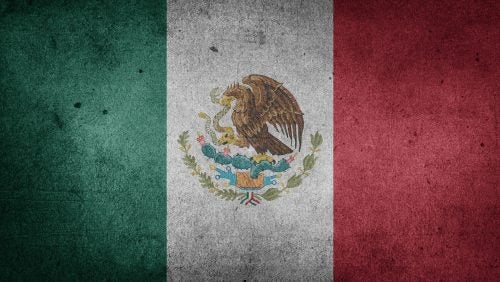The Legal Authority for Designating Mexican Cartels as Terrorist Organizations and its Consequences
March 3, 2020 by Editor

By: William Skewes-Cox
On November 5, 2019, President Trump declared his desire to “wage WAR on the drug cartels and wipe them off the face of the earth” in response to the killing of several American citizens, including children, by cartels in northern Mexico. At the end of month, Trump said in an interview that he would designate the cartels as terrorist organizations. This led to negotiations between the United States (U.S.) and Mexico. However, on December 6, 2019, Trump announced that he had reached an agreement with Mexican President Andres Manuel Lopez Obrador to “temporarily hold off this designation.”
The legal authority for designating a terrorist organization comes from two different sources: Section 219 of the Immigration and Nationality Act and Executive Order 13224. Under Section 219 of the Immigration and Nationality Act, Mexican cartels can be designated as “Foreign Terrorist Organizations” (FTOs). Section 219 of the Immigration and Nationality Act establishes the following criteria for an FTO: it must be foreign, “engage[] in terrorist activity […] or retain[] the capability and intent to engage in terrorist activity or terrorism,” and the “terrorist activity or terrorism of the organization [must] threaten[] the security of United States nationals or the national security of the United States.” The Department of State has the authority to designate an FTO. Under Executive Order 13224, the cartels, their individual members, connected financiers, and front companies can be deemed “Specially Designated Global Terrorists” (SDGT). Executive Order 13224 defines a terrorist organization as “individuals or entities that […] have committed, or pose a significant risk of committing, acts of terrorism that threaten the security of U.S. nationals or the national security, foreign policy, or economy of the United States” The Department of State and the Treasury Department have the authority to designate an SDGT. Both departments work with the Department of Justice in making their determinations.
Members of Congress have argued that the cartels meet the definition of terrorism because they “use violence to gain political […] influence.” This alleged political aspect of cartel violence is critical to meeting the definition of terrorism under U.S. law, because the U.S. Code requires that violence “appear to be intended – (i) to intimated or coerce a civilian population; (ii) to influence the policy of a government by intimidation or coercion; or (iii) to affect the conduct of a government by mass destruction, assassination, or kidnapping.” However, it is not entirely clear that cartels’ violence has a political valence, since arguably, it is used as a means to further their businesses.
Nevertheless, the President has wide authority to direct his cabinet to move ahead with the designation. If he did, it would bring important consequences.
The inclusion of Mexican cartels on the State Department’s list of terrorist organizations would prohibit financial institutions from conducting business with the cartels. In 2011 a U.S. government investigation revealed that Mexican cocaine smugglers laundered billions of dollars through Wachovia, which is now owned by Wells Fargo. In 2012, HSBC, a global investment bank, also admitted to dealings with Mexican cartels, and agreed to pay a fine of over one billion dollars to U.S. prosecutors. Designation would only increase the penalties banks can face for their ties to the cartels.
Terrorist designation would also make it a crime for Americans to provide cartels with “material support or resources.” Given the extent of cross-border operations by the cartels, this could ensnare a large number of Americans. It can mean that the small time drug dealer who works a street corner for a gang can face terrorism charges and longer jail sentences. There is even the possibility that consumers of cartel drugs in the U.S., American gun shops whose weapons are bought by gang members, and victims of extortion could be accused of supporting a terrorist organization.
Among the most controversial implications of designation is the potential use of drones against cartel members in Mexico. Trump was asked if designating the cartels as terrorist organizations would allow for drone strikes. He refused to directly answer the question. The U.S. and Mexico have a long-standing and deep bilateral security relationship. The utilization of drone strikes in Mexico would usher in a new era. Under international law, the U.S. would need an authorizing U.N. Security Council resolution or the permission of the Mexican government to conduct military operations within its territory. Under U.S. law, the use of military force would require congressional approval through an Authorization for the Use of Military Force (AUMF). The Al-Qaeda AUMF has been used to justify the use of drones across Africa, the Middle East and South East Asia but there is no reasonable argument that Mexican cartels are “associated forces” with Al-Qaeda.
In order to avoid jeopardizing the U.S.-Mexico relationship, Mexico’s sovereignty should be respected. However, the Mexican state does at times find itself outmatched by the cartels, as was seen in the failed arrest of El Chapo’s nephew. Bringing the full weight of the American military on the cartels might be necessary to bring about their destruction. But absent any parallel strategy to address the fundamental driver of the drug war, i.e. the insatiable American demand for recreational drugs, new cartels may emerge once again from the rubble.

